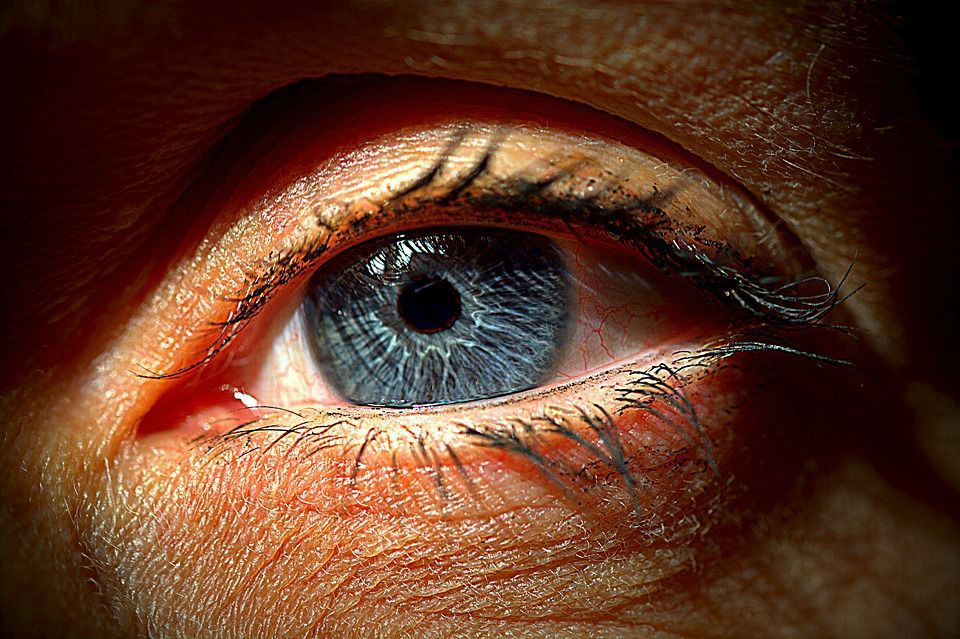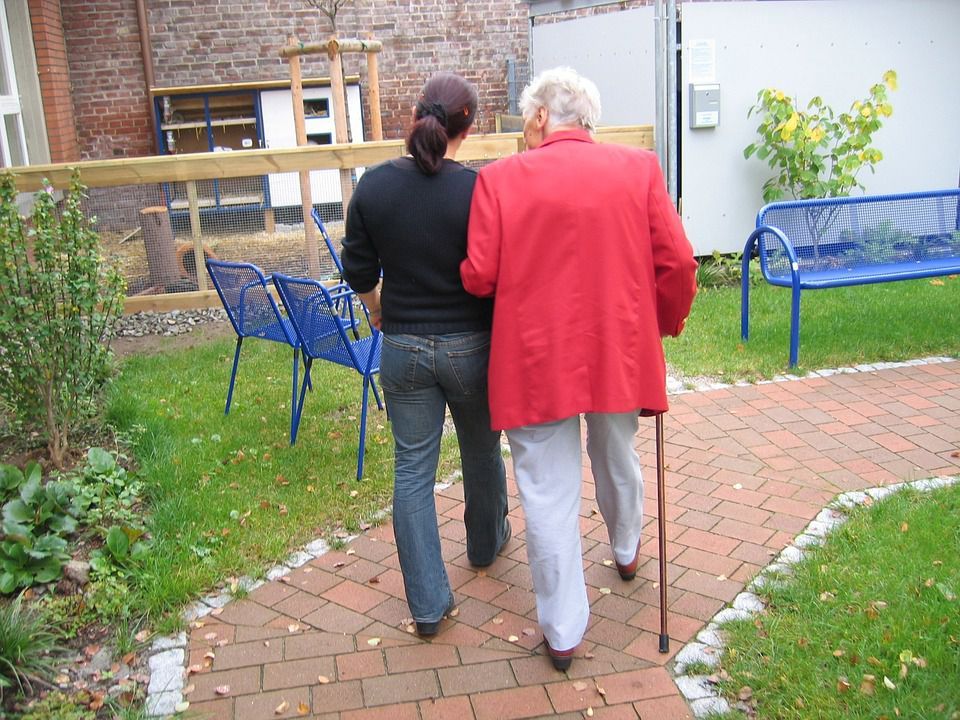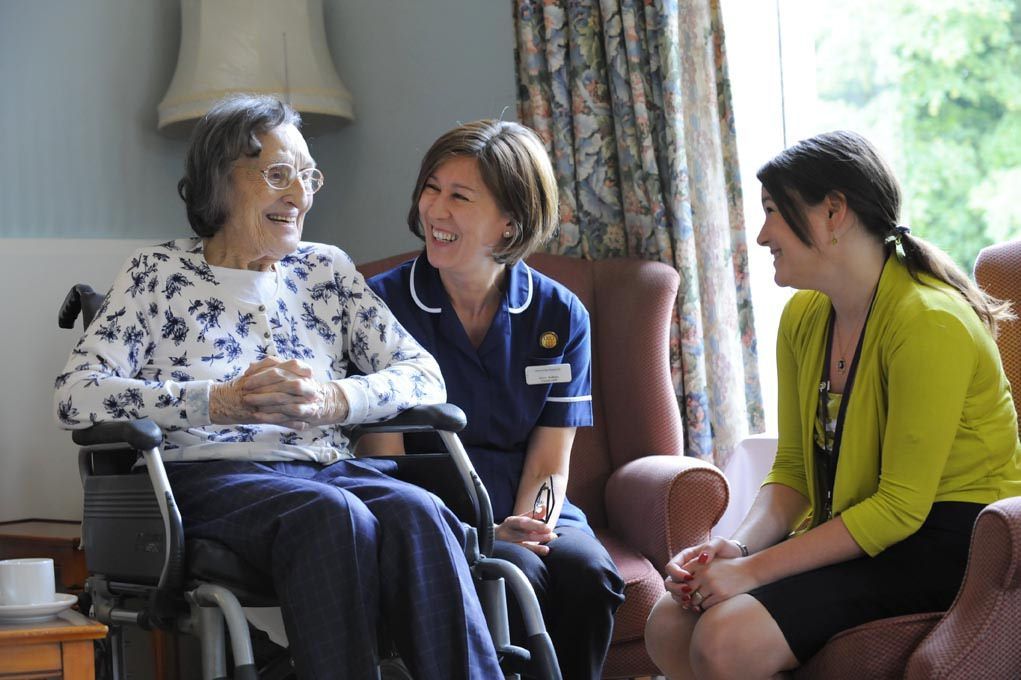How to Decide Whether or Not to Get a Pet for Your Loved One
- By Emily
- •
- 24 Oct, 2017
- •

There is a lot of research that shows that pets can have great effects on mental and physical health. Pets can bring a sense of calm and happiness to the people around them. If you are considering getting a pet for your loved one, these are the things you should consider.
The benefits are definitely something you want to look into. If your loved one is lonely, depressed, or just seems like they could use the companionship, a pet might be a benefit to them.
You should think about whether or not they will be able to care for the pet. Pets need attention and care as well. If your loved one has trouble caring for themselves, they may need extra help to care for the pet. Before you get one for them, make sure that there are plans in place for the care of the pet.
Consider the personality of the pet. After deciding that your loved one will positively benefit from the pet and that the pet will be well cared for, only get them a pet that will do well with your loved one. For the sake of the pet as well as your loved one, try your best to find a good match. This will likely be a calm, older (but not too old) pet.
Keep the cost in mind. Pets cost money, so make sure that there is room in the budget for this. You should also figure in the possibility of medical expenses, especially if the pet is an older one.
Make sure the pet is healthy. If your loved one has a weakened immune system, you do not want a pet around them that might make them sick. Before bringing the pet into the house, check that it does not have any diseases that will spread to its owner.
Determine what will happen to the pet if your loved one is no longer able to take care of it. If it is likely that the pet will outlive its owner, or if your loved one might have to go to a nursing home or facility where pets are not allowed, you should make plans for who will look after the animal. This is something that really needs to be thought through for an elderly owner.
Look into organizations that specialize in helping the elderly adopt pets. You will likely get a reduced adoption rate, and they are much more likely to be able to help you pick out the right pet for your loved one.
If owning a pet is not an option for your family member, find alternative ways for them to benefit from animal companionship. You might bring your pet or another family member’s pet over for visits. You could also look into local therapy dog organizations and take your loved one to one of their events. These types of encounters could bring some animal companionship into their lives if owning a pet is not an option.
Pets can be a huge benefit to homebound people, but they are also quite a responsibility. When you are considering getting a pet for your loved one, you should make sure that it is a decision that both you and they take very seriously. However, if you ultimately decide to get a pet for them, it is something that will surely brighten their days and boost their mood and health.

One good way to care for your kidneys, especially if you have kidney disease or failure, is to eat foods and drink liquids that do not contain chemicals and nutrients that are bad for your kidneys. When your kidneys are already damaged, it is extremely important to not damage them any further. Instead, be kind to your kidneys and watch your diet.
The nutrients that you should cut down on are protein, phosphorus, potassium, and sodium. This means that a person watching out for their kidneys should learn to eat less meat and fewer processed foods. The best way to ensure to cut down on these nutrients is to cook for yourself or your loved one as often as possible.
Some of the best foods for a kidney-friendly diet are red bell peppers, cabbage, cauliflower, garlic, onions, apples, cranberries, blueberries, raspberries, strawberries, cherries, red grapes, egg whites, fish, and olive oil. When in doubt, these foods will always be a safe choice. Davita provides a good digital cookbook full of recipes for those who are conscious of their kidneys. It can be found here https://www.davita.com/recipes/index.cfm?utm_source=msn&utm_medium=cpc&gclid=COGN5Yq6uNkCFV-YxQIdlZUKOQ&gclsrc=ds.
When it comes to foods you should avoid on a kidney-friendly diet, limit any liquids that contain the nutrients you want to avoid, especially sodium and phosphates. When you eat chicken and pork, eat them fresh rather than as processed meats that often have high sodium levels. Cut back on meat and cheeses. Make the protein you eat count by choosing egg whites and fish often, which are low in phosphorus. Limit fats to healthy fats by avoiding shortening and animal fats when you can.
Being able to care for your body in a natural way, like by eating the right foods, is a great way to care for your body without the side effects that often come with medication. While medicines are sometimes necessary, it is best to choose natural options when they are available. Even if you need to take medication, a diet like this is a great way to accompany them for even better results. This type of diet can be followed whether you are wanting to simply take care of your kidneys or whether you have kidney disease already.

A deficiency in vitamin B12 can cause anemia, which can be a very serious problem. A lack of the right vitamins causes a body to produce fewer red blood cells. When the body is low on red blood cells, this can cause fatigue, lightheadedness, pale skin, bleeding gums, a sore and red tongue, stomach problems, and weight loss. If you notice these symptoms in yourself or a loved one, you should see a doctor.
Anemia from a B12 deficiency is most prevalent in people who have certain conditions that prevent them from absorbing B12. It is very uncommon that a person does not consume enough B12 because there is so much of it in meats, milk products, eggs, and other enriched foods. The causes of B12 deficiency anemia usually are pernicious anemia, part of the digestive tract being removed in a surgery, or other diseases that affect the way the body absorbs food. This anemia is not typically caused by a lack of intake of vitamin B12, but a lack of absorption. One of the causes, pernicious anemia, is an autoimmune disease that destroys the cells in the stomach which bond with B12 and allow for absorption.
In the case of pernicious anemia, the best ways to get sufficient B12 are to either have large doses of it or to get it into the bloodstream by bypassing the digestive system. There are nasal gels and injections that ensure that people with pernicious anemia can get enough B12.
Elderly people can be especially susceptible to B12 deficiencies because of lower absorption rates, a reduced intake of food, or a reduced variety of diet. Vegans and vegetarians are also more susceptible because B12 is only naturally found in animal products. Foods that have been enriched with B12, like certain breads and cereals, are other options for vegans and vegetarians.
Any form of vitamin B12 deficiency can be treated by taking B12 supplements. If the anemia is caused by dietary deficiencies, then a changing of diet should be enough or supplements could be taken. However, if the problem is absorption, then supplements will be the solution. Any dietary adjustments or supplements need to be followed for the rest of one’s life.
Anemia is not something to be taken lightly. If it is left alone, it will likely worsen. Because older people are more susceptible to anemia problems, the elderly especially should pay attention to any symptoms. If you think you or a loved one have anemia, check with a doctor for a diagnosis. If you suspect anemia, over the counter vitamins might be considered while you are waiting to get into the doctor. Extremely high B12 levels can be a problem, but supplements are usually safe to take even if you do not have low B12 levels.
A B12 deficiency is something that can be easy to fix, but it can cause major problems if it is left untreated, so it is best to pay attention to any symptoms and take action if you think you or a loved one has anemia. At Mile High Home Care in Denver, one of our personal care assistant's can help a person in need to maintain a healthy diet by providing assistance with meal planning and preparation. Our Mile High personal care assistants can also help with grocery shopping and ensure that the elderly person has access to healthy food options including those with sufficient amounts of vitamin B12, or any vitamin or nutrient that may be missing from their current diet. If you are interested in utilizing our personal home care services to ensure you or your loved one are getting the healthiest diet and meals they need, contact us at Mile High Home Care today.

Glaucoma is a disease that many people are aware of, but not many truly understand. There are two basic types of glaucoma: open-angle glaucoma and angle-closure glaucoma. Open-angle glaucoma is the most common type, and it is a disease that shows little-to-no symptoms until permanent vision loss occurs. Angle-closure glaucoma presents with eye pain, headaches, and seeing halos around lights.
Individuals with open-angle glaucoma experience glaucoma very differently than those with angle-closure glaucoma. Open-angle glaucoma patients very rarely experience any pain or discomfort from the disease itself. The only thing they usually notice is a loss of vision. Even this is not often noticed until advanced stages because the peripheral vision is what is typically lost first. However, pain and discomfort can often come with glaucoma treatments.
Glaucoma treatments are usually successful at slowing or stopping the vision loss, especially if glaucoma is detected early. Individuals who are at a high risk of glaucoma because of eye injuries, near-sightedness, or family history and those who are over 65 should have regular eye exams to check for glaucoma. The disease may not be easily recognized by the patient, but eye pressure tests and vision tests can detect it.
People who are on glaucoma medications may experience dry or itchy eyes, blurred vision, stinging, or burning. However, these medications, as well as procedures, can prevent permanent damage to the ocular nerve, which is what causes the loss of vision. When glaucoma is left untreated, it will typically lead to blindness over time.
There is no cure for glaucoma, so anyone who has it will have it for life. Any treatments will need to be continued, even if the person feels like there is no need for it.

Being homebound can be scary for many people. You have to depend on your support network to provide the things for you that you need. While a strong support network is important to someone who is homebound, not all people have that. Those who do have support also sometimes need help from other areas to relieve the responsibilities of their caregivers or to fill in where their caregivers are not able to help. There are so many resources out there for the elderly, but sometimes it can be hard to find some of these services. Here is a list of some of what is offered in the Denver area:
Meals on Wheels. This service has been a blessing to many homebound seniors. They offer meal delivery at little to no cost. They also offer a safety check to make sure that the person they are delivering to is okay. To find a Meals on Wheels provider near you, follow this link: https://www.mealsonwheelsamerica.org/signup/find-programs?filter=80031.
Seniors’ Resource Center. This non-profit organization offers many services to the community including affordable transportation, free cleaning services, care managers, and adult day care. Because this is a non-profit, there are limits to their services, but they can still be extremely helpful. This is a link to a list of their services: http://srcaging.org/services/.
Senior Discounts. Brush up on which places or services offer senior discounts. You can often find handymen or plumbers who will offer senior discounts. This website has many coupons and a list of other senior discounts: http://coloradosavvyseniors.com/. This website offers a referral service for handymen who offer discounts: http://seniorhub.org/.
Medical Equipment Lending. There are many services that offer lending of medical equipment such as shower chairs, walkers, wheelchairs, and other such equipment. Some of these services are free while others require a small fee. However, any of these lending programs can save hundreds of dollars. The Assistance League of Denver offers one of these services: https://www.assistanceleague.org/denver/hospital-equipment-lending-equipment-project-help/.
There are lots of programs to assist the elderly, and these are something you should take advantage of if you need them. Being aware of what is offered can make your life and your loved one’s life much easier. For more information about services for the aging, visit http://www.aginginplace.org/.

It seems that with every year that goes by, people are becoming more and more conscious of what they eat. When you get on social media, you are likely to see at least a post or two about the latest research in health foods or a new diet. While all of this can be overwhelming, and not everything that is discovered or every diet that you see ends up being exactly right, there are some important things to learn from a more health-centered culture. What we eat does matter. The same is true for the elderly and homebound. Their diets can have a huge effect on their health and how well they feel from day to day.
However, it can be harder for someone who is homebound to eat healthy. Frozen meals and quick dinners are often the easiest things to prepare when you are crunched for time, and often the meal is prepared for only one or two, which can make it difficult to get all the necessary food groups into a single meal without making too much food. But making sure that your loved one eats a good diet should be very important. Here are a few ways you can make that happen:
Portion fruits and vegetables into small bags for snacks. Because it can be hard to prepare all the necessary fruits and vegetables into meals when your schedule is tight, take a few minutes every few days to make ready-to-eat snacks and store them in the fridge. Remind your loved of the snacks and let any other caregivers know to encourage your loved one to snack on those.
Buy healthy frozen meals. Years ago, many frozen meals were not healthy, only convenient. This is something that has really changed recently. You can go into a frozen aisle and find tons of different choices of frozen meals, and many are healthy. You will probably even be able to find a few varieties that a picky eater would like as well. These will be good to have on hand when you don’t have time to cook up a meal.
Search online for easy healthy meals. Spending just a little bit of time online can save you a lot of time in the long run if you search for quick meals that are also nutritious. You might also find some new favorite recipes as well.
Discourage too much sugar or snacking. While you want to have some healthy snacks available, you should not encourage too much snacking. Eating out of boredom can be a tendency for people who have to do a lot of sitting, so instead encourage activities that keep the hands busy to try to offset this tendency. Too much sugar can also be a problem, so try to encourage healthy substitutes when possible. However, you probably will not want to cut out sugar entirely because your loved one likely be unappreciative of not having a say in what they can or cannot eat.
Make sure your loved one is eating enough. While you want to make sure that your loved one is eating healthy foods and not eating too much, not eating enough is also something to look out for as well. This can be a tendency in the elderly, and it has obvious consequences. Keep an eye on how much your loved one eats at meals, and make sure that they are getting the nutrition they need.
There is a lot to keep track of when you are caring for someone else, but their diet should be something that is at the top of your list. A good diet can make a world of difference in the health of your loved one.

At Mile High Home Care, family is at the center of our business. We are established on family values and hold family bonds in high esteem. Emily Neuhold, the woman who started Mile High Home Care, has a big family of her own that means the world to her, so she understands the importance of caring for patients as if they’re family because to someone, they are family. For those clients who do not have close family members, we at Mile High Home Care also understand the importance of having people to count on.
We also highly value the families of our caregivers. Schedules are flexible for caregivers so that they can take care of their own family needs. Working for a company that values family relationships also causes the caregivers to value the family relationships of others, including their clients.
Family can be more than just the people who we are related to. Anyone who is always there for a person and wants to bring only good to that person is like family. We want to be an extension of your family while also encouraging your own family connections. If you are ever in need of help, just give us a call and someone will be there for you. Emily herself often goes and visits patients when they are in need of someone. It does not matter what time of day it is or whether it is the weekend, you can always count on Mile High Home Care to be there for you.
Our philosophy is that having strong relationships and people who are reliable and friendly helps the caregiving process. We support family caregivers and offer them help when they need it. Family caregivers are a crucial part of the caregiving process. They are highly valued and supported.
Not every client has a strong family network, but Mile High Home Care aims to care for each person in the same way we care for our own families.

Not everyone has a strong family network, but those who do benefit greatly from it. If you have a loved one who cannot fully care for themselves, you can play an instrumental part in helping them. Whether you live near or far from them, there are things you can do to support them both physically and emotionally.
Help out the primary caregiver. If you are not the primary caregiver, you can support whoever is. You can either help them by taking up any tasks or responsibilities you can, contributing financially, or even just by encouraging them. When you assist the primary caregiver, this indirectly helps your homebound loved one. They will benefit from a less stressed caregiver and from knowing that they have other family members who care.
Send words of encouragement. Anyone can do this, but this might be something that those who cannot help with tasks or contribute financially can easily do. Your loved one is likely struggling with the changes in their life, and it is always a good thing for them to know that they are cared for when they are facing difficult situations. A kind card or phone call can make their day.
Do chores or tasks that do not normally get done. Ask your loved one what they would like or need done around the house that their primary caregiver does not have time for. They might like to be taken on a nice walk or need the ceiling fan cleaned, but whatever extra task that your loved one would like done, offer to do it occasionally.
Organize family get-togethers that your loved one can attend. If your family member is one who enjoys spending time with family, this can be a very positive event for them.
Encourage other family members to pitch in any way they can. Caring for a family member should be a family project. The more that family members help out, the easier the job is for each individual person and the more that your loved one will benefit from a strong family network.

For many elderly and disabled people, home care is their primary care service. However, others need more care, such as home health care while there is another group of people who use less care, such as home delivery services and meal services. People at all levels of the care service spectrum can utilize home care to fit their needs.
One of the wonderful things about home care is that it is flexible. Home care includes many different services that can be tailored to individual needs. Different services can be added together and used as much or as little as needed. For a list of the services we provide, visit our page http://www.milehighhomecare.com/services-provided.
For people needing more care than the typical patient using home care, home health care is an excellent service that can be provided. However, having a health care professional can be expensive and there are many things that a nurse will not do when visiting a home. For any extra services that are needed, a personal care provider can come into the home separately and help the person with any additional needs such as cooking, cleaning, transportation, companionship, and medication reminders.
In the cases where less care is needed, home care can also be a valuable supplement. If a person receives meals on wheels, it is not likely that they will need someone to come in and cook for them. However, they might still need someone to help with cleaning or medication reminders. There are also many people who are mostly independent, but could benefit from a few of hours of help to keep on top of the housework each week.
Relative caregivers are extremely helpful, however, sometimes they too need a break. Respite care can be used in these cases so that a caregiver can take some time to themselves, take a trip, or catch up on work or family time.
Home care is extremely flexible in how it can be used. Any of these services can be provided as much or as little as they are needed. Whether a person needs a lot or only a little bit of care to remain in their own home, home care is a way to bridge the gap.

One of the biggest fears of aging people is that they will be put in a nursing home. There is nothing wrong nursing homes, but they are a last measure for most. In general, people prefer to live in their own homes. Home care allows those who are not fully able to care for themselves to stay at home longer. It helps them retain a certain level of autonomy and independence while receiving additional companionship and personalized care. It also reduces stress and strain on them and their family members while freeing up time and energy so that they can do the things that make life truly enjoyable. One-on-one attention from a caregiver can help the elderly recover faster from illnesses or injuries. Assisted home care is also cost-effective compared to other forms of care. It provides peace of mind to family members who may not be able to provide full-time care themselves.
Home care typically offers services such as homemaking, cooking, cleaning, help bathing, dressing, and eating, as well as medication reminders and transportation. Some people are able to take care of their loved ones in these regards, but there are other people who have no one they know who can provide the level of care that they need. Home care provides a second option for those people who might otherwise have to leave their home.
It is also typically less expensive for a person to stay at home and receive home care services than living in a nursing home or assisted living facility. This is a huge help for the millions of older Americans and their families who cannot afford the large expenses that nursing homes and assisted living facilities require.
Around 10,000 Americans turn 65 every day, and that number is expected to hold for the next 20 years. At this rate, our ever-growing elderly population will require more care than ever. The home care business is helping to bridge the gap between the people needing care and the care providers. Unlike facilities, home care is flexible and has a great ability to grow with the increasing elderly population.
In the upcoming years, home care will be needed more than ever. The services care providers offer can make a large difference for the elderly who need care but do not wish to live in a facility. This is good news for both those needing care and the businesses that provide it.

Home care and home health care do not sound very different, but they certainly are. Home care is also known as non-medical home care; this name can offer insight into the important distinction between home care and home health care. Home care is usually provided by a certified agency that employs non-medical professionals. The caregivers are able to offer many services, but none of them include skilled medical care. A home health agency provides skilled medical care usually through nurses and occupational therapists.
Home care services typically include homemaking, cooking and delivering meals, bed and wheelchair transfers, medication reminders, transportation, travel companion services, companion care, respite care, and personal care such as help with bathing, dressing, and eating. Home health care services can include taking blood pressure, checking vitals, dressing wounds, and other medical care.
Home care is intended to help people perform daily tasks that they are not able to do alone while home health care is often intended to help patients recover at home or remain at home when they might otherwise need to be in a hospital or nursing home. As a way to keep a person out of a nursing home or as a way to reduce hospitalization, both home care and home health care are useful.
Both forms of care can be used on a short-term or long-term basis, depending on the needs of the individual requiring care. Home care is usually the less expensive of the two, but this is because home health care requires more skilled care providers.
Home health care and home care can also be used jointly. A person can have both a home health care professional visit them for their medical needs and a home care provider visit them for their daily living needs. For some, using both home care and home health care is the best option.
If you are considering using either home care or home health care, it is important to know the difference between the two. Mile High Home Care mainly offers home care, but it offers home health care options as well. Contact us at 303-429-5805 for more information.
